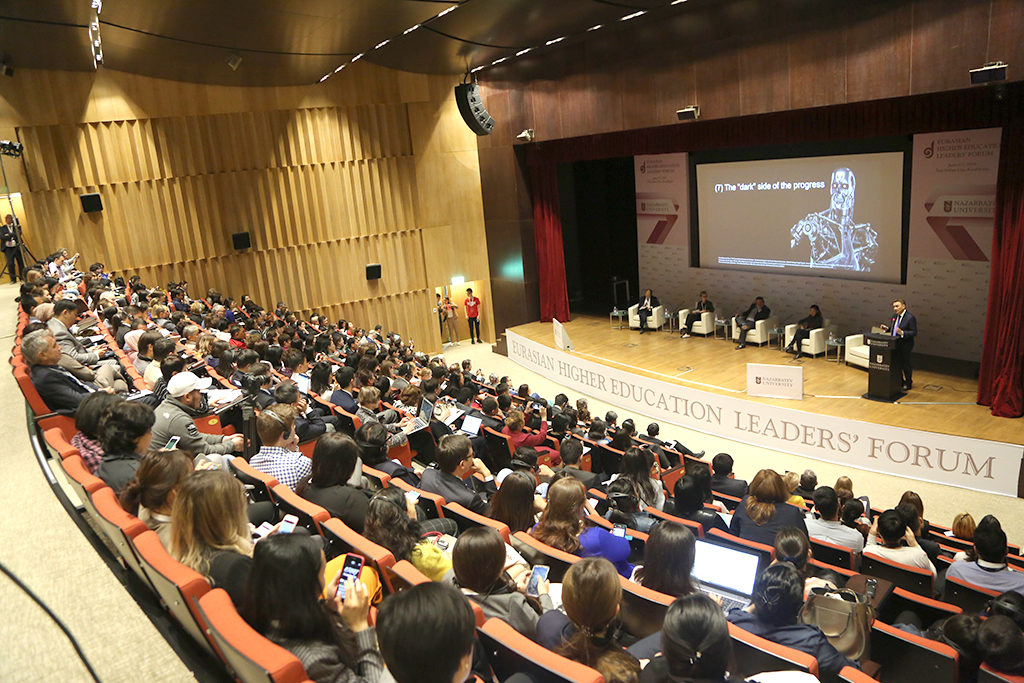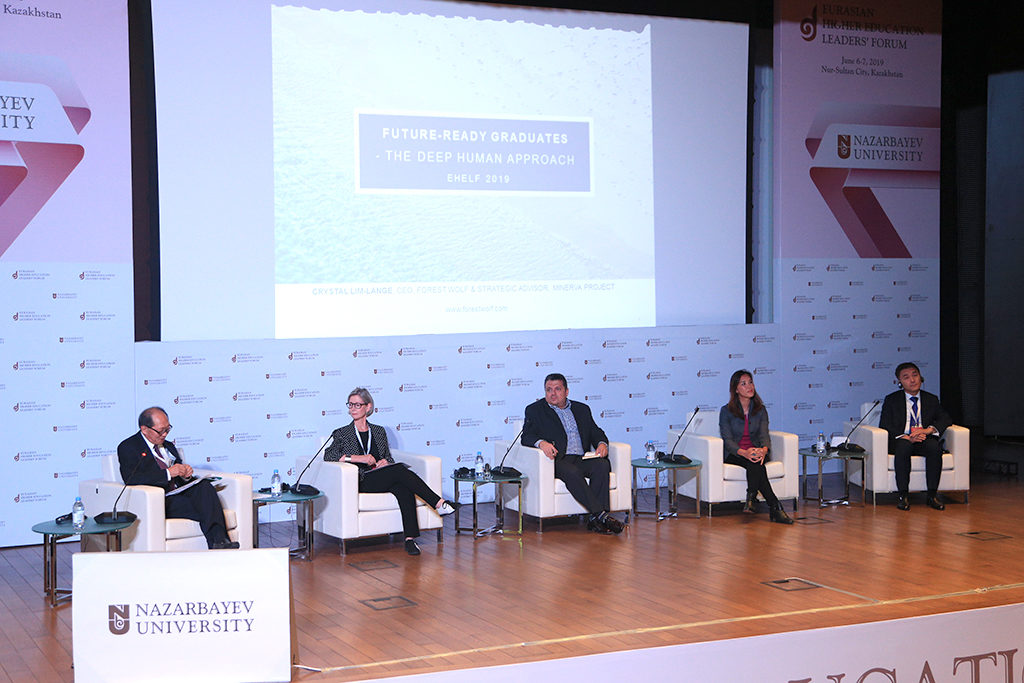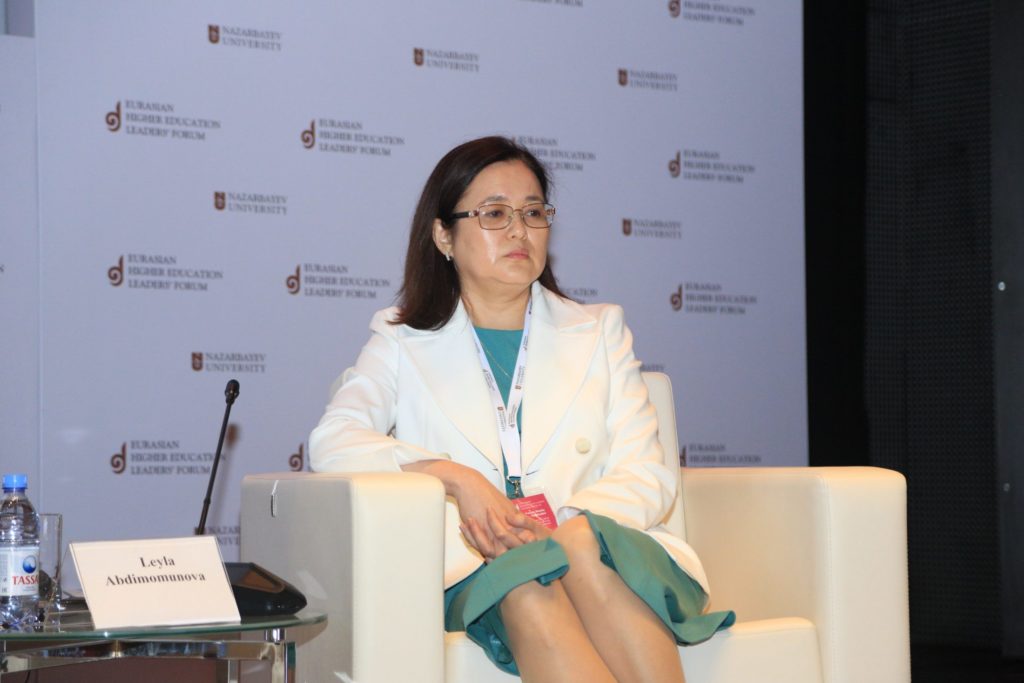NUR-SULTAN – The Kazakh capital hosted the eighth annual Eurasian Higher Education Leaders’ Forum (EHELF) June 6-7 to discuss the changing job market, the new skills it requires and how to maximise the value of higher education institutions in preparing their students for the future.
The EHELF 2019-themed Future Ready Graduates attracted approximately 300 delegates from 12 countries. Among the forum participants were educational leaders, representatives of business and government organisations, scholars and employers.
“It’s a really good platform to share experiences about future ready graduates from different countries, not only in the Eurasian region but also other developing countries. The VUCA (volatility, uncertainty, complexity and ambiguity) world is affecting the whole world, no matter which part of the world you belong to. The world is flattening and the issues are the same,” said a participant.
Today’s job market looks at the opportunities Artificial Intelligence (AI) and Big Data have to offer. Many people fear the novelties will make thousands of jobs no longer relevant and only increase social inequality. Higher education institutions, in this regard, are puzzled by one question, “How to prepare young generations for the works of the future?”
Although there is no single obvious answer, educational institutions envision their next steps in internationalising learning experiences, increasing opportunities for student research, providing lifelong learning opportunities and developing a strong portfolio of trusted partnerships with leading industry players.
Do AI and Big Data represent a threat?
The terms AI and Big Data are used interchangeably in discussing future job markets. Yet forum participants seem to agree they are only the instruments that can be used in achieving greater goals, such as addressing global challenges.
“My feeling is that technology is the tool that is used to do things humans want to do – the creative side is what actually makes the tool useful and leads to positive human outcomes,” said University at Buffalo Provost and Executive Vice President for Academic Affairs Charles Zukoski. “Focusing simply on STEM (science, technology, engineering, and mathematics) fails to create the ability to narrative. So I believe that one of the things that is missing in the conversations we are having is the role that creative disciplines play in our society. By ignoring them, we harm ourselves.”
During his speech at the first plenary session, Astana International University President Serik Irsaliyev noted that, above all, higher education institutions should focus on preparing good citizens who care about creating a sustainable life and work to reverse climate change.
“I gained a lot of new information about what educational institutions should do to prepare future graduates. One of the ideas I associate with is that AI might replace humans in many ways, but there are some human skills that will never be substituted by AI, for example, creativity,” said a forum participant.
How will the Kazakh job market change?
Boston Consulting Group (BCG) expects three main global trends to influence the Kazakh job market, said BCG Principal Leila Abdimomunova. The change in technological character resulting in the increasing complexity of professions and new occupations will be followed by a change in the character of the work force.
“Today the work force gets more diverse, more inclusive. The work force is aging. More young people are getting out to the job market and this is a very different youth generation X, Y and Z with absolutely different demands, habits, inclinations. This is increasing the number of active women in the job market and it is about an increasing number of people with disabilities. This means that the market will be more diverse, the competition will increase,” she said.
The third most important change is that of work character.
“We see that the work regime is changing. The distant works start to appear. Part time jobs. Flexible jobs. The geek economy is developing. This is freelance; these are the people who are engaged in independent work and define on their own what they will do, how will they work and where and for whom they will work. Today, freelancing makes up 20 percent of all work force… Freelancers always choose to stay freelance. They have an additional flexibility where they can choose projects they like,” she added.
What are the top skills to develop?
Abdimomunova noted the BCG recruiting team looks for leadership, critical thinking and communication skills in students. In Kazakhstan’s job market, the company targets students from Kazakh British Technical University, KIMEP and Nazarbayev University as its graduates come to their company with a satisfactory package of skills and knowledge.
“Kazakh youth are strong in showing good academic performance, participate in social life and show leadership skills in student bodies or more often in social projects. They have good enough technical knowledge. In other words, where there is a need to do a quick computational work there is no problem,” she said.
The problem, however, comes in soft skills such as “ability to structure a problem… (and) synthesising an outcome.”
“We (Kazakh students) can solve a problem, but what we cannot always explain is what the solution means, why it is important and how it is applicable. Communication. Although having good technical expertise, youth cannot shortly express their ideas and do not always have a skill to build relations with a conversation partner,” she added.
In a more general outlook, the next generations do not have to be able to programme a robot or do rocket science to be in demand.
“No one student is going to have all the skills. So, you have to get good at one thing. But you need to learn how to get together in teams in order to solve the problems,” said Zukoski.
“One of the competencies is global citizenship. Basically, it means learning to live together. Learning to live together well. We can try that out in our universities, because we live together and learn together,” said Cambridge University Education Faculty Dean Susan Robertson.
“You have to study these things. These new ideas, new STEM things are very important. But they are not the only things that are important… It is more holistic,” added Zukoski.




